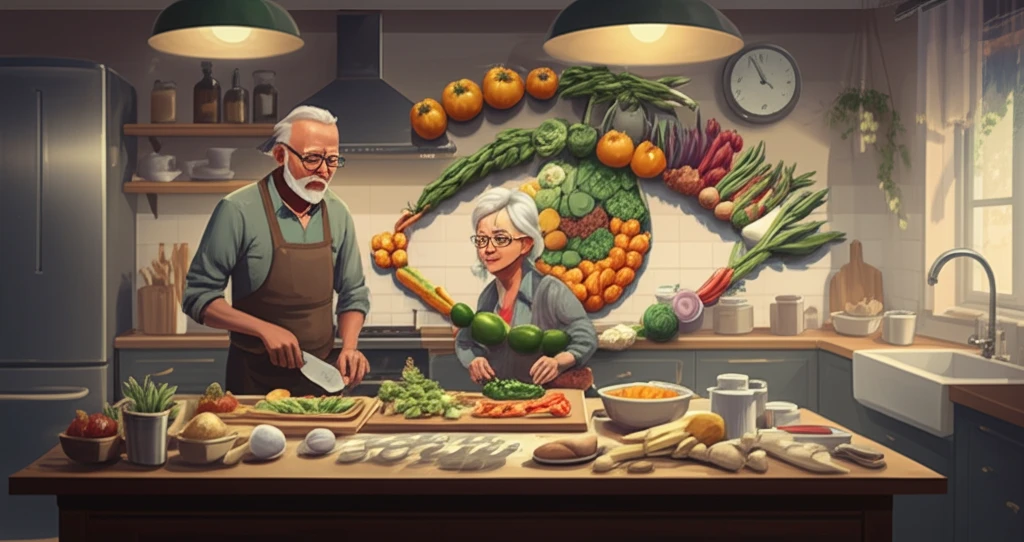
Eating for Eye Health: How Community Kitchens Can Help Fight Macular Degeneration
"Discover how community-based cooking programs are emerging as a delicious and effective strategy to combat age-related macular degeneration (AMD) and improve overall eye health."
Age-related macular degeneration (AMD) is a leading cause of vision loss, impacting countless older adults and leading to progressive central vision loss, often resulting in social isolation and diminished quality of life. While there's no cure for AMD, research suggests that dietary interventions – like the Mediterranean diet or increased intake of carotenoids – may offer protection against its progression. But how can we translate this knowledge into practical, everyday solutions?
Imagine a place where older adults can learn to prepare delicious, eye-healthy meals while connecting with others in their community. This is the power of community kitchens, and it’s the focus of a groundbreaking pilot study called "Eating for Eye Health." This initiative explores the feasibility of using participant-informed community kitchens to promote dietary changes that benefit macular health.
This innovative approach tackles the challenge of AMD from multiple angles, providing not only nutritional education but also fostering a sense of community and social support. Keep reading to discover the key findings of this study and how community kitchens might revolutionize the way we approach eye health.
The "Eating for Eye Health" Intervention: A Recipe for Success

The "Eating for Eye Health" study recruited adults (50+ years) with documented visual impairment due to dry AMD. Participants were invited along with a partner, carer, or friend for support. The core of the intervention was a dynamic cookery activity, divided into small groups and tasked with preparing different courses of a three-course meal rich in carotenoid-rich foods – nutrients known to promote eye health.
- Participant-centered design: The program was tailored to the needs and preferences of the participants, ensuring engagement and adherence.
- Social connection: Cooking and eating together fostered a sense of community and reduced social isolation.
- Nutritional education: Participants learned about the specific nutrients that support eye health and how to incorporate them into their diet.
- Practical skills: The cookery activity provided participants with the skills and confidence to prepare eye-healthy meals at home.
A Promising Recipe for the Future of Eye Health
The findings are encouraging, 12 adults participated in the study. Participants reported increased confidence in cooking skills, improved taste acceptability of food, and positive subjective experiences of "social participation" and "peer support". This pilot study offers compelling evidence supporting the feasibility of National Health Service social prescribing of community cookery programs. The results suggest that community kitchens can empower older adults with AMD to enhance their cooking capabilities, broaden their social opportunities, and implement meaningful dietary changes to safeguard their eye health. As the population ages, innovative approaches like this are essential to combating vision loss and promoting healthy aging.
